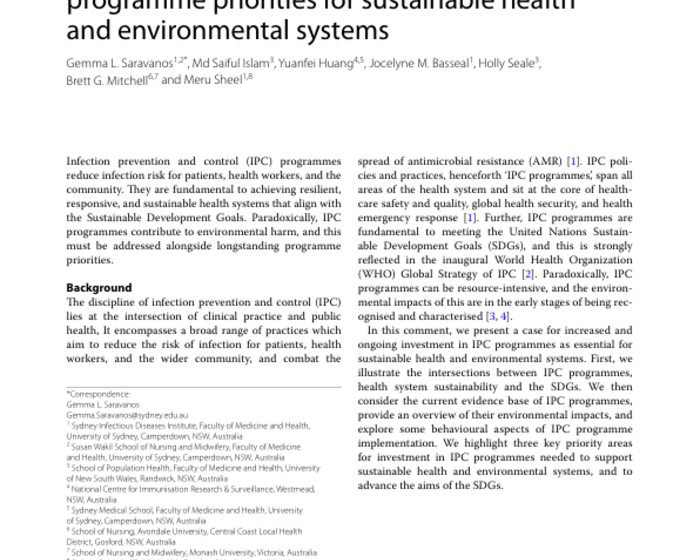BMC Global and Public Health volume 2, Article number: 6 (2024) Cite this article
Infection prevention and control (IPC) programs play a crucial role in reducing the risk of infection for patients, health workers, and the community. They are essential for creating resilient, responsive, and sustainable health systems that align with the Sustainable Development Goals. However, it is important to address the environmental impact of IPC programs alongside their long-standing priorities.
Background
The discipline of infection prevention and control (IPC) sits at the crossroads of clinical practice and public health. It encompasses a wide range of practices aimed at minimizing the risk of infection for patients, health workers, and the wider community, as well as combating the spread of antimicrobial resistance (AMR) [1]. IPC policies and practices, collectively referred to as IPC programs, cover all aspects of the healthcare system and play a central role in ensuring healthcare safety and quality, global health security, and health emergency response [1]. Furthermore, IPC programs are vital for achieving the United Nations Sustainable Development Goals (SDGs), as emphasized in the inaugural World Health Organization (WHO) Global Strategy for IPC [2]. However, it is paradoxical that IPC programs can have resource-intensive requirements, and the environmental impacts of these programs are only beginning to be recognized and understood [3, 4].
In this commentary, we present a case for increased and ongoing investment in IPC programs as essential for sustainable health and environmental systems. Firstly, we highlight the intersections between IPC programs, health system sustainability, and the SDGs. Next, we discuss the current evidence base of IPC programs, provide an overview of their environmental impacts, and explore certain behavioral aspects related to implementing IPC programs. Finally, we emphasize three key priority areas for investment in IPC programs that are necessary to support sustainable health and environmental systems and to advance the objectives of the SDGs.



